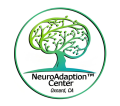Neuromuscular Disorders Treatment in Oxnard
At the NeuroAdaption Center in Oxnard, we offer innovative treatment for neuromuscular disorders such as Parkinson’s, multiple sclerosis, and more. Our unique Neuro Adaption Therapy is a cutting-edge neurorehabilitative process utilizing a patented, FDA-certified orthotic device. This device engages task-specific motor movements and strengthens upper and lower body movements by inducing hypergravity. This process reawakens dormant neural pathways, increases bone density, improves balance and posture, and reduces or eliminates falls.
Our therapy is holistic, addressing the entire body rather than just isolated symptoms. By doing so, we enhance overall quality of life, increasing walking speed and distance, and improving everyday activities like reaching for items on a shelf or dressing.
Why Choose Neuro Adaption Therapy?
- Rapid Results: Experience improvements in minutes, with a focus on everyday living activities.
- Comprehensive Care: Our approach is holistic, treating all movements and symptoms simultaneously.
- Personalized Treatment: Each patient receives a custom treatment plan, overseen by a licensed physician and a certified NeuroAdapter therapist.
- Insurance Accepted: We accept Medicare, Tricare, and other major insurance plans, with no cost for Medicare patients.
Get Started Today
Discover how Neuro Adaption Therapy can transform your life. Schedule a free consultation at our Oxnard location and see the difference our unique approach can make. Whether you’re dealing with Parkinson’s, MS, or another neuromuscular disorder, our goal is to improve your quality of life and help you regain independence.
Frequently Asked Questions (FAQs)
- What is Neuro Adaption Therapy?
- A neurorehabilitative process using a patented orthotic device to strengthen motor movements and improve overall mobility.
- Who can benefit from this therapy?
- Individuals with neuromuscular disorders such as Parkinson’s, MS, MD, ALS, and those recovering from strokes.
- How does the therapy work?
- The therapy involves task-specific training in a state of hypergravity, reawakening neural pathways and improving motor skills.
- Do you accept insurance?
- Yes, we accept Medicare, Tricare, and other major insurance plans, offering treatments at no cost to those with Medicare.
- What are the benefits?
- Increased bone density, improved balance, reduced falls, and enhanced quality of life.
